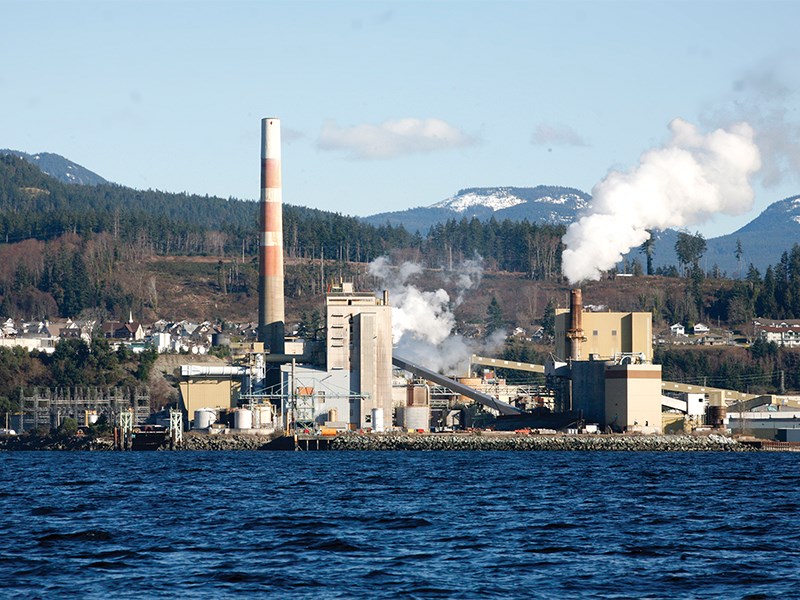Only one item of business was on City of Powell River finance committee’s August meeting agenda: discussing the renewal of the city’s tax-exemption bylaw for major industry, specifically Catalyst Paper Corporation.
Tax relief from the city to major industry over the past 10 years has saved Catalyst close to $14 million, city chief financial officer Kathleen Day told the finance committee on Thursday, August 31.
Day said that number would be accurate if the mill had continued to pay at 2007 rates.
"It's not the best comparison, but it's simple," she said.
Mayor Dave Formosa said he would be open to renewing the bylaw for a further three years with a $300,000 tax increase, but warned that council should not press its luck.
“I'm always nervous about the mill,” said Formosa. “I'm extremely nervous given the new ownership structure.”
Formosa said he and finance committee chair Russell Brewer, along with senior city staff, met with Catalyst representatives on two occasions about the new bylaw over the past few months. The company has opened its books for the city, he added.
“It's really tight for them," said Formosa. “What we do know is they believe they have a future in paper towel, food and medical-grade paper. We know they need runway to get these new products online.”
Day told the committee if council wants to establish a new tax-exemption program, it will have to do so before October 31.
Formerly a publicly traded company, Catalyst became privately held last year. Formosa said new ownership parted ways with former Catalyst CEO Joe Nemeth in June and added that he has not met the new owners.
Brewer said he thought the $300,000 increase was fair as it is still less than what Catalyst paid Municipality of North Cowichan for its taxes last year.
“I'm also worried, quite frankly, with the different ownership structure for the mill,” said Brewer.
Brewer added that three years of tax certainty gives the company some financial ability to strengthen its position in new markets.
Formosa said although Catalyst requested no increase, he felt $300,000 was the highest the city could ask for.
"If they haven't made it in three years, they are not going to make it," said Formosa, “and we have to be thinking about what we are going to do [in the future].”
Catalyst closed its Elk Falls pulp and paper mill near Campbell River in 2009, citing a decline in the commodity paper markets and uncompetitive labour and municipal tax costs as contributing factors.
With the closure of the mill and other industries, Campbell River lost 98 per cent of its major-industry tax base between 2007 and 2017, said Day.
According to Day’s report, to make up for that lost tax revenue, Campbell River shifted the burden to residential and business taxpayers. House taxes increased over that period by just over 100 per cent and business taxes increased by 58 per cent.
In 2009, Catalyst informed the towns where its mills are located, including Powell River, that it would hold back millions in property taxes and filed a petition with BC Supreme Court to have a judicial review of its property taxes. It later lost the court battle, but City of Powell River decided it did not want to see Catalyst shut its local mill down and came up with a tax-reduction plan.
In 2007, major industry in Powell River had paid $4.94 million. In 2017, the last year of the most recent three-year tax-exemption program, Catalyst paid $2.8 million.
City of Powell River council adopted a tax-revitalization bylaw that set 2011 major industry taxes at $2.25 million. The city then passed a tax-revitalization bylaw with the same tax formula for four years, from 2012 to 2015. The current bylaw, which expires at the end of 2017, was adopted in 2014 and raised taxes by just over $500,000.
Between 2007 and 2017, Powell River residential tax payers have seen a 68 per cent increase in property taxes. Local businesses have seen a 64 per cent increase as the tax burden has shifted.



